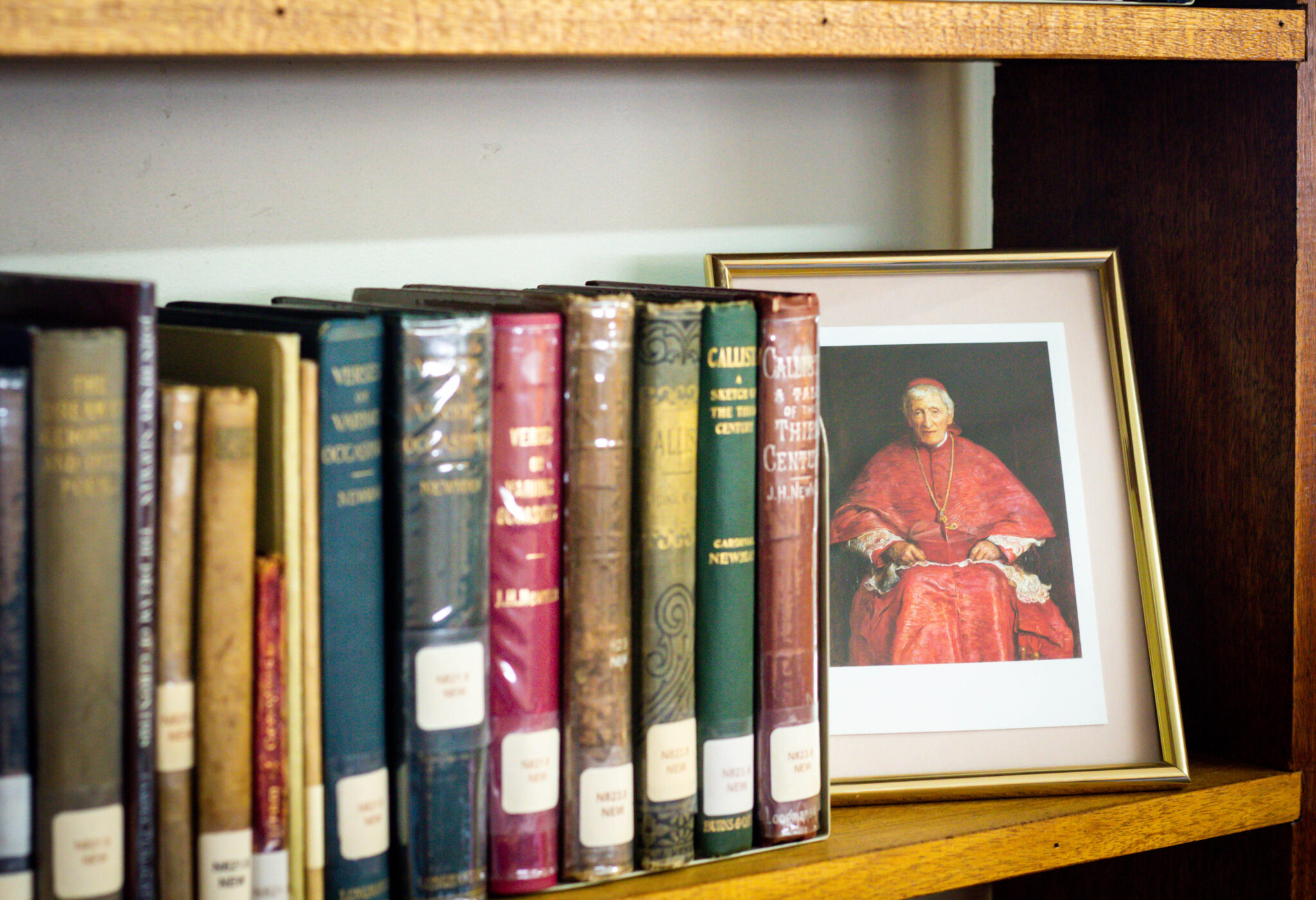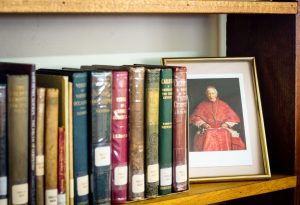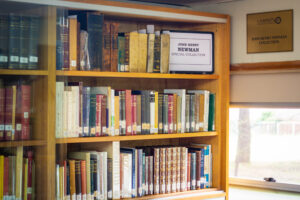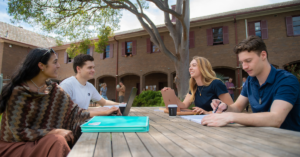

Today marks 220 years since the birth of St John Henry Newman. A renowned theologian, writer, poet, educator and eventually Cardinal, Newman was a central figure in the religious history of 19th century England. He did much for the acceptance of Catholicism during his lifetime, which spanned the years of many other influential men and women, including Charles Dickens, William Booth, Florence Nightingale and Matthew Arnold. Newman wrote extensively and many of his works are contained in the John Henry Newman Special Collection in the Campion Library.
Two recent acquisitions for the special collection were volumes 5 and 7 of Newman’s Letters and Diaries – a set that runs to over 30 volumes and illustrates just what an extensive writer Newman was.
Almost every entry of his diary indicates either the receiving or writing of a letter; he corresponded with many friends and acquaintances, including Edward Pusey, John Keble and William Wilberforce.

The letters cover a range of topics from practical notes (“My dear Bloxam, I wish you to come and dine here today at five o’clock, if you can. Ever yrs John H Newman”) to letters full of news and thoughtful comments. A mention of Australia even appears in a letter sent in December 1839: “They say that a merchant in Australia has left a million of money to the Church for a Cathedral, College etc…”
Newman was also deeply interested in education and his lecturers on this topic were published in his famous 1852 work, The Idea of the University. In it, Newman writes that the university “has done its work when it has done as much as this. It educates the intellect to reason well in all matters, to reach out towards truth, and to grasp it”. The founders of Campion were inspired by Newman’s to create a university that upheld these ideals.
Another of Newman’s notable works which features in Campion’s Library is the Apologia Pro Vita Sua, (A Defense of His Life). The Apologia is a spiritual autobiography which was written in response to attacks by Charles Kingsley, and explains how and why Newman converted from Anglicanism to Catholicism. This work received a rapturous welcome in England at its publication and has never been out of print. Along with modern publications, the Campion Library is fortunate to have a first edition of the Apologia, published in London by Longman in 1864.
Newman’s writings are of value to all who are interested in a liberal education. If you have not read any of his books before, be encouraged to explore Newman’s works for yourself!
If you’re interested in visiting or learning more about the John Henry Newman Special Edition at Campion, please get in touch.

Keziah Van Aardt
Author
Keziah is the Library Manager and Study Skills Advisor at Campion College. To get in contact, please email k.vanaardt@campion.edu.au or call (02) 9896 9307



